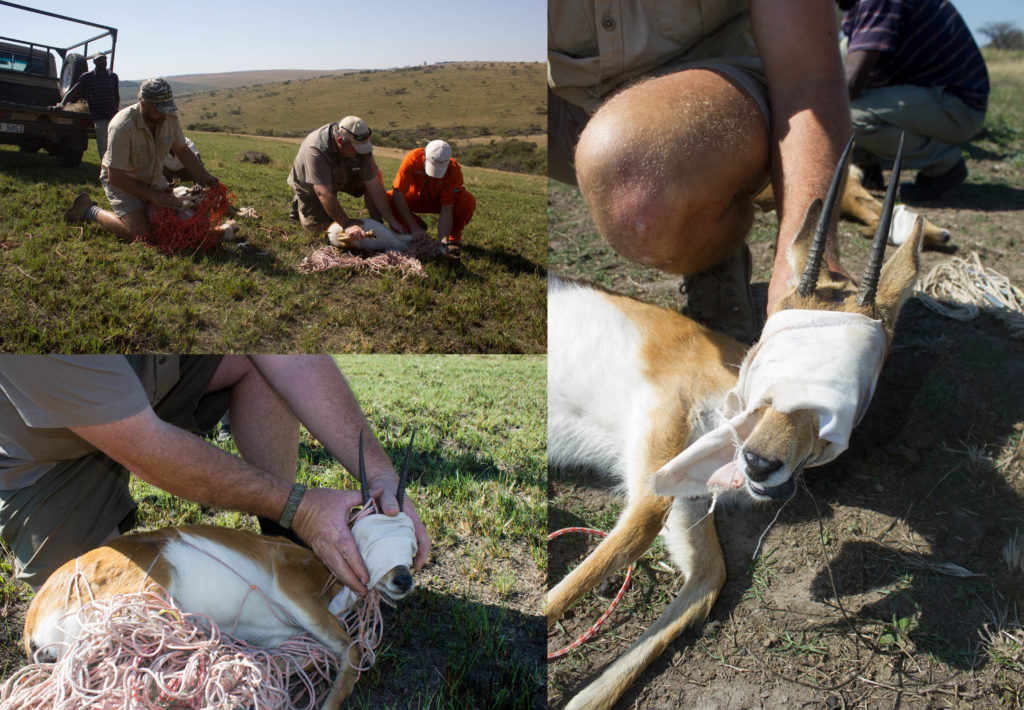In the 21st century there are many conservation challenges that we are faced with. The poaching of Rhino and Elephant for their ivory, vultures disappearing at an alarming rate and species like the Oribi (Ourebia ourebi) struggling to keep head above water. For Watervale Safaris and owner Harold Lister, Oribi preservation and occasionally when possible conservation, has been one of the driving factors and ongoing challenges on the reserve. Oribi numbers have declined drastically over the last few years due to a number of factors, to briefly touch on a few:
- Poaching – Oribis preferred habitat is the open Grasslands. These has made them very susceptible to poachers. Large parties of poachers with their hunting dogs can decimate an Oribi population during one hunt. Much of Oribis preferred habitat falls in the hands of private land owners pursuing agricultural endeavors. Only having cattle fencing and lack of funds for dedicated anti-poaching teams, this tiny antelope is a prime target for poaching parties. Some poachers hunt substantially and others poach as part of a ‘dog betting’ game, hunter with most kills in a days hunt, takes the pot. With poaching parties of up to 15 poachers arrested on the reserve before, with 2 to 3 dogs each, can be up to 45 dogs out during a hunt, easily catching and killing an entire breeding group as they move through the area.
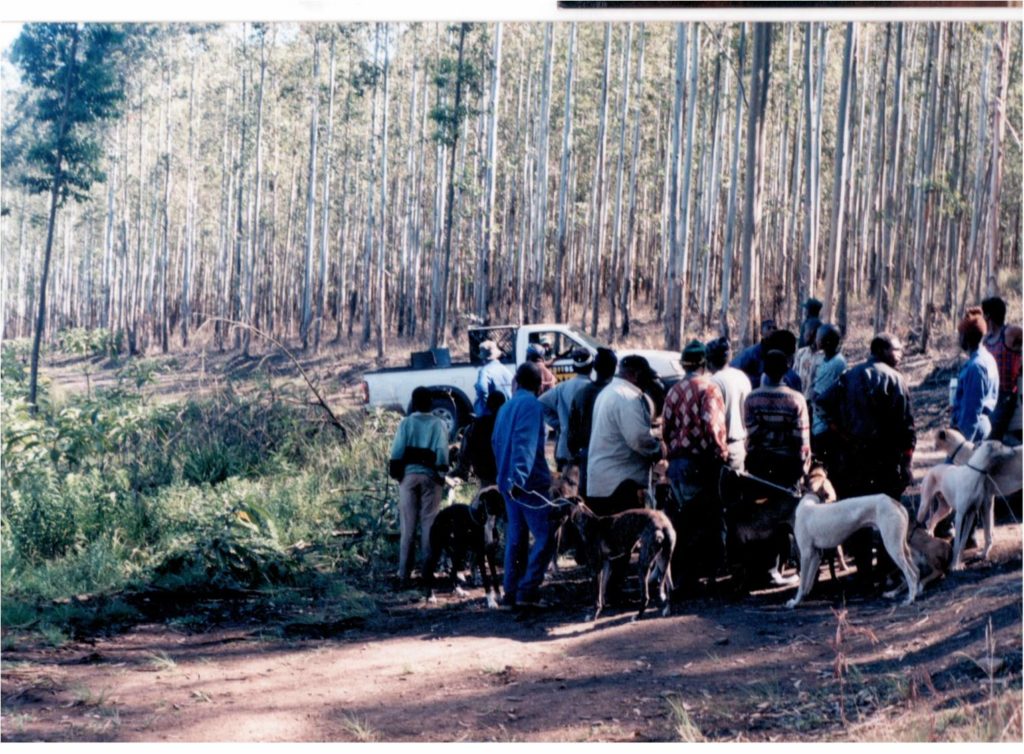
Poachers Caught and Arrested on Nhlamvini Game Reserve
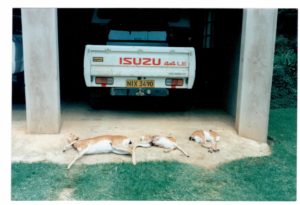
Female Oribi and Twin Lambs Recovered from Poachers
- Loss of Habitat – The Oribi is a highly specialized antelope inhabiting African temperate grasslands. It is known to occupy two major habitat types, namely open grasslands and wooded grasslands. A lot of these areas in South Africa fall in the hands of private land owners pursuing agricultural endeavors. Many of these land owners, like Harold Lister, have taken it upon themselves it trying to preserve and conserve the species for future generations. The Oribi Working Group was formed as a support base for these farmers and with ongoing growth from initiatives like the Oribi Working Group, more farmers can be educated in the role they can play to help preserve the species. Grassland degradation due to overstocking, poor fire management, erosion and mining will continue to grow if there is no support base for farmers to turn to for advice. The Oribi is a grassland specialist and cannot survive elsewhere. The loss of grasslands on flat to undulating terrain is thus a very real threat to the survival of the species.
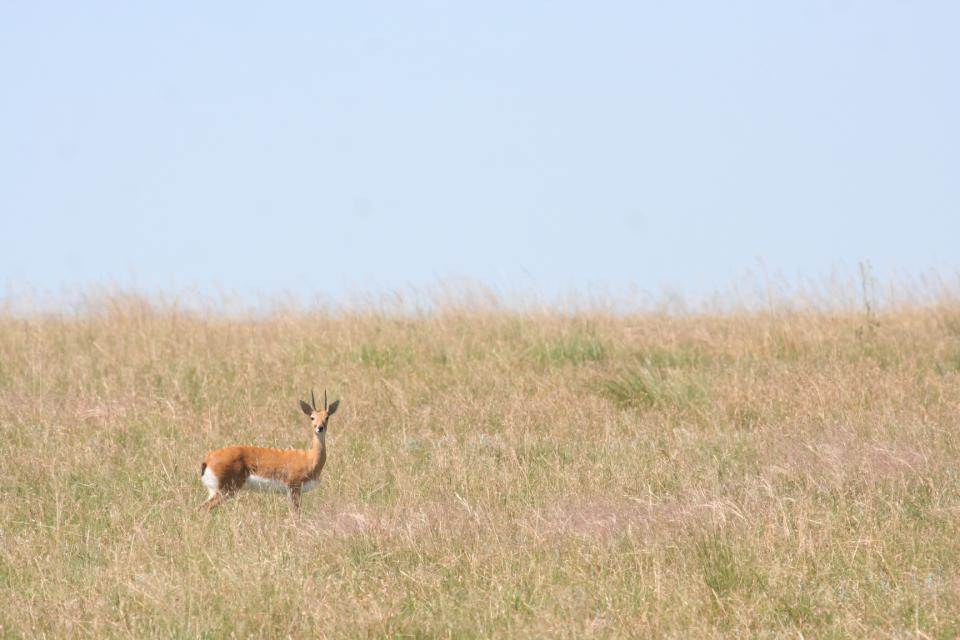
Oribi- The Grassland Specialist
- Over Predation – On many of these farms where Oribi occur, over predation of Oribi by Caracal and Jackal are a major factor in the decline in their numbers. Caracal and Jackal thrive in the habitats in and around agricultural lands. With no natural predators keeping their numbers in tact, and plenty of available food (cattle calves, goats, chickens from communities) we have seen an explosion of both Caracal and Jackal on the Nhlamvini Game Reserve. An effective predator control program is vital for the survival of species like Oribi.
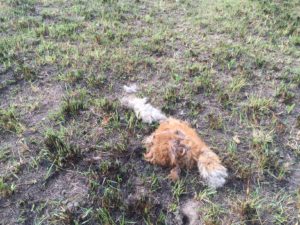
Remains of an Oribi killed by a Caracal
These are to name but a few of the challenges faced in the preservation of Oribi, as experienced by us here at Watervale Safaris. Other factors like poor law enforcement, lack of awareness, lack of coordination / cooperative management and lack of understanding / appreciation of the value of grasslands are some of the other challenges that are faced from year to year.
There are however many dedicated, hard working people out there, who’s input and efforts into organizations like the Oribi Working Group are of paramount importance to the growth of the organization. I believe that if farmers can all start sharing their knowledge and experiences with each other, have a platform to go to, to advise you along the process of obtaining Oribi, successfully relocating and managing them to breed and thrive. As with all species in Africa, as that animal increases in value, so then does its population.
During September we were fortunate enough to be able to relocate 6 Oribi to Nhlamvini Game Reserve. The Oribi came from a nearby farm, where the farm owner was battling to protect the animals from the multiple threats they face. The Oribi have seemed to settle in nicely in their new home, where they are safer for the time being behind a game fence and the staff at Watervale Safaris.
A big thank you to the guys from Tracy & Du Plessis Game Capture for all their assistance in the Oribi relocation.
